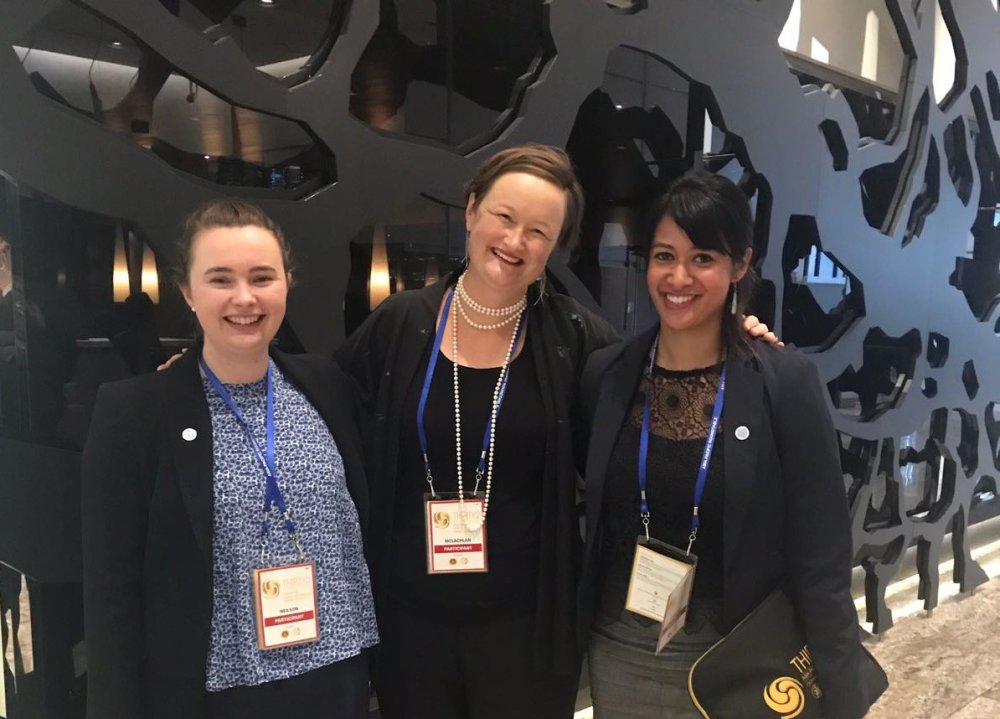
Jane Neilson (left) in KL with the Foundation's Pip McLachlan and Ashlyna Noa
Before I became a member of the Foundation's Leadership Network in 2014, I had only tangentially heard of Track II, or “unofficial” diplomacy and I was not sure what it was all about. I began working in the New Zealand public sector in the same year and being so focused on work, it took me another year or two to truly start putting my hand up for Foundation opportunities.
This year’s APR was a chance to broaden my thinking and engage with a diverse pool of people engaged in the Track II space. This included more seasoned participants from New Zealand: Pip McLachlan, director engagement and research for the Asia New Zealand Foundation; David Capie, director of the Centre for Strategic Studies at Victoria University; and Natasha Hamilton-Hart, director of the New Zealand Asia Institute and Professor at the University of Auckland’s Business School.
For fellow Leadership Network member Ashalyna Noa and I, it was great to witness the first all-female panel at an APR. It was also a privilege to be part of an Asia New Zealand Foundation Track II delegation of women led by Pip. Compared to some Track I events I have attended in recent years in Asia, there was a notable number of women at the dialogue, including academics, ministers and diplomats from around the region.
I valued hearing a range of perspectives on prominent political and security issues affecting Asia; issues that I don’t generally look at in my current climate change-focused policy role with the Ministry of Defence. On that note, it felt like a missed opportunity that how climate change is affecting Asia was not a topic of discussion — a worthy topic to suggest for next year.
Panel topics that were covered included regional updates from across Asia, which was timely with the post-Olympic diplomatic momentum on the Korean Peninsula and with elections in Southeast Asia changing the status quo of recent years. The results of the historic Malaysian election came in the night the APR ended, so not quite in time for lively conference discussion.
Other diverse conference topics included diplomacy in the digital age, combating violent extremism and the future of the Asia Pacific Economic Forum, which New Zealand will be hosting in 2021. The panels with the most diversity among the panellists, be that gender, age or regional perspective, featured the most engaging discussions.
Some panels fell short in terms of advancing fresh ideas on a topic and this was evident from some struggling discussions that followed them. However, hearing views from those whose ideas I wouldn’t usually engage with had merit in its own right. This was especially so in regards to an important issue for New Zealand: the confusion and disaccord over the shape of the rules-based international order.
Discussion topics aside, it was the multiple sidebar discussions with people I would be unlikely to meet or spend a lot of time with in a New Zealand context that was the main highlight of the trip for me. Being able to share the experience and the beauty of Kuala Lumpur with equally curious people from New Zealand and meeting new and old friends from across the region was a bonus.
The 32nd Asia Pacific Roundtable was hosted by the Institute of Strategic and International Studies Malaysia in Kuala Lumpur in May.


